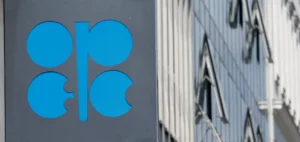The Nigerian government is struggling to finalise a $5 billion loan with the Saudi Arabian Oil Company (Saudi Aramco), according to local press reports on June 10. The agreement, initiated in 2023, is based on the daily delivery of 100,000 barrels of crude oil to secure repayment of the loan.
The scheme is intended to boost foreign exchange reserves and support the national budget, amid high funding needs for infrastructure and social spending. However, the recent drop in Brent crude prices, now around $68 per barrel, complicates the profitability of the financial arrangement. This price represents a nearly 18% decline from the $80 per barrel threshold used as a benchmark in the original negotiations.
Concerns raised by lenders
Financial institutions involved in the process, including several Gulf-based banks and one African institution, have expressed doubts over the viability of the deal. Nigeria, the leading oil producer in Africa, is struggling to exceed a daily production of 1.5 million barrels, according to sources familiar with the matter. Technical and logistical constraints are limiting the country’s export capacity.
Approximately 300,000 barrels per day are reportedly already committed to other similar agreements, reducing the available margin to back the Aramco loan. This situation weakens Nigeria’s position in the negotiations. “It’s difficult to find an institution willing to commit without solid volume guarantees,” said one banker involved in the talks.
Rising budgetary pressure
The proposed loan is part of a broader strategy to mobilise external financing. In late May, Nigerian President Bola Tinubu submitted a request to parliament for a $24.14 billion external borrowing package (around NGN36.12bn), which is currently awaiting approval. This envelope could include similar mechanisms to the one proposed with Aramco.
The continuation of this type of financing will depend on Nigeria’s ability to align its commitments with current market conditions and provide guarantees deemed credible by financial institutions. As it stands, production challenges combined with oil price volatility are slowing the discussions and highlighting the limitations of a model reliant on physical oil deliveries.






















